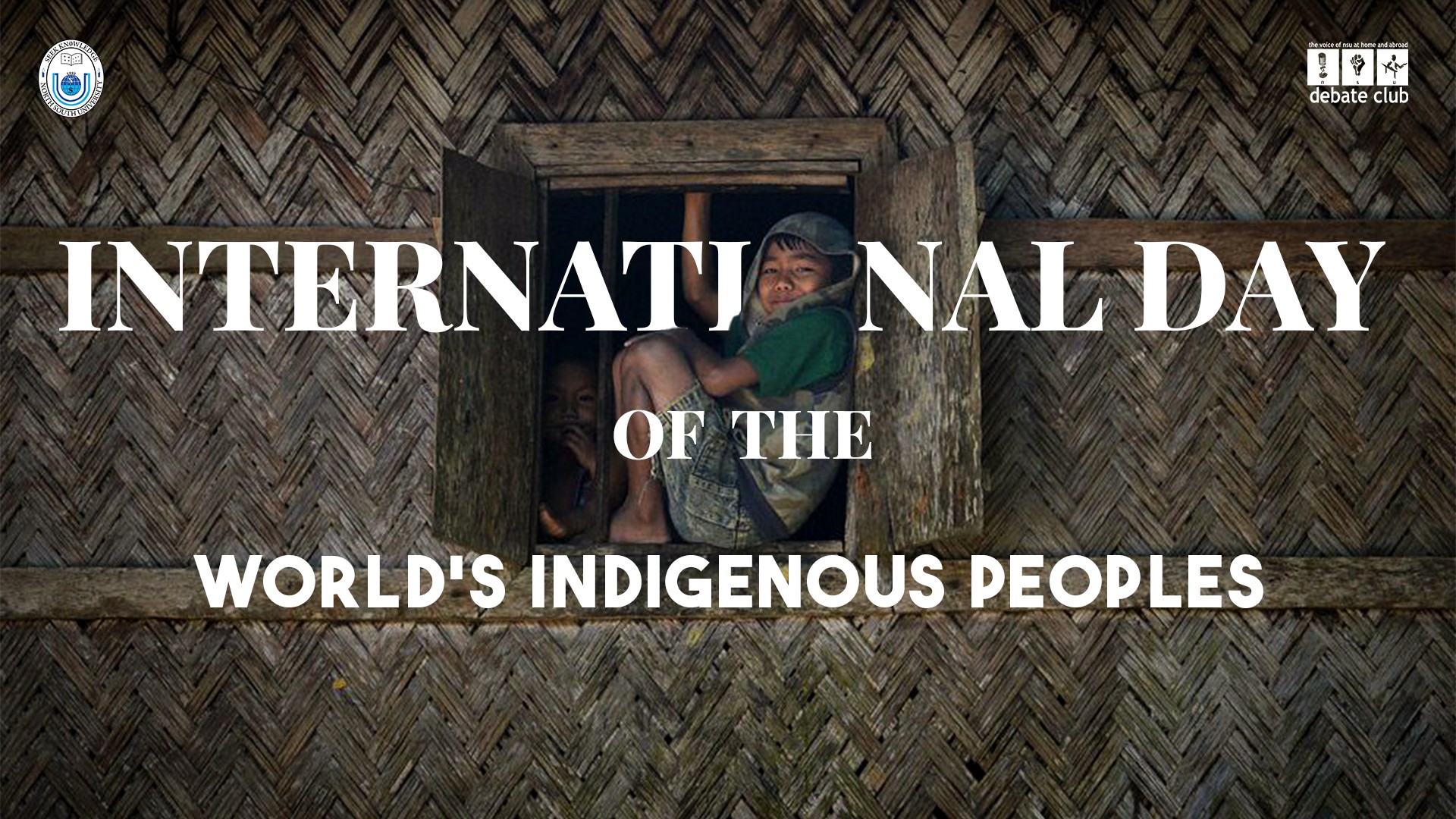International Day of the World's Indigenous Peoples
On this International Day of the World's Indigenous Peoples, we take the opportunity to honor Bangladesh's Indigenous communities' rich cultural heritage and invaluable contributions. With over 45 distinct groups, including the Chakma, Marma, Garo, Santal, and many more, these communities have preserved unique languages, traditions, and knowledge systems that enrich the nation’s cultural mosaic.
Their role in environmental stewardship, Jhum cultivation, a sustainable agricultural practice, and biodiversity conservation, especially in the Chittagong Hill Tracts, highlights their deep connection to nature and ecological balance.
The vibrant traditions of Indigenous arts enrich Bangladesh's heritage, from the soulful Chakma and Marma music to the intricate craftsmanship of Santal and Garo artisans. Leaders like Jyotirindra Bodhipriya Larma, Raja Devasish Roy, Kalpona Chakma, and Priti Bala Chik Baraik have courageously advocated for justice, equality, and the protection of ancestral lands.
Celebrating Indigenous peoples means honoring their contributions, respecting their rights, and ensuring their voices in the mountains, which are integral to the mainland narrative.
Agriculture:
The Adivasi communities of Bangladesh have a rich agricultural heritage rooted in sustainable practices and deep respect for nature. The Chittagong Hill Tracts practice Jhum cultivation (shifting cultivation farming technique), growing crops like rice, millet, and various vegetables. In addition to Jhum cultivation and terrace farming, Adivasi communities in Bangladesh are also involved in fisheries and other agricultural practices. In particular, the Chakma and Marma communities practice wet rice farming and cultivate fish in paddy fields and small ponds, contributing to local food security.

The Garo people are known for betel leaf cultivation, while the Santal community grows rice, maize, mustard, and pulse in plains. Indigenous farmers also use horticulture, growing fruits like pineapples, bananas, and oranges. These diverse practices, including sustainable fisheries, highlight the Adivasi's significant role in enriching Bangladesh’s agricultural landscape. These products reflect the Adivasi’s sustainable approach to farming, contributing to the country’s agricultural diversity.

Prominent Figures:
Manabendra Narayan Larma united CHT ethnic groups. Elected in 1970 to East Pakistan's Provincial Assembly, he advocated for regional autonomy post-Bangladesh's creation. As the lone Hill Tracts legislator, Larma opposed Bangladesh's Constitution for sidelining non-Bengali cultures. Bangabandhu Sheikh Mujibur Rahman rejected Larma's demands, insisting on Bengali cultural dominance. He threatened Bengali settlement in the Hill Tracts, diminishing local autonomy.

Jyotirindra Bodhipriya Larma, widely known as Santu Larma, advocates for the rights of the CHT Indigenous peoples. As the Parbatya Chattagram Jana Samhati Samiti (PCJSS) leader, Larma was crucial in negotiating the 1997 CHT Peace Accord with the Bangladesh government. The accord, which ended a prolonged insurgency, aimed to establish autonomy, withdraw military forces, and recognize Indigenous land rights. Despite its significance, challenges in full implementation persist, and Santu Larma continues to fight for the accord's commitments.

Kalpana Chakma, a symbol of resistance, was an Indigenous activist who fought for the rights of her people before her mysterious disappearance in 1996. These leaders have significantly contributed to Bangladesh's ongoing struggle for Indigenous rights.

Culture and festivals:
The Indigenous peoples of Bangladesh have a rich tapestry of cultures and festivals that reflect their unique heritage and traditions. Each Indigenous group, such as the Chakma, Marma, Garo, Santal, and others, celebrates its cultural identity through vibrant festivals, rituals, and traditional practices.
The Chakma community celebrates Biju, marking the Bengali New Year with three festivities: cleaning homes, preparing traditional foods, and engaging in cultural performances. The Marma people observe Sangra, part of their New Year celebrations, with water festivals, dances, and traditional games.
The Garo community celebrates Wangala, a harvest festival where they offer thanks to the sun god, Misi Saljong. It features traditional music, dances like the “Dama,” and vibrant attire. The Santals observe Sohra, a festival that honors cattle and includes dancing, singing, and painting homes with traditional motif

These festivals are a time for joy in preserving and passing down cultural traditions, fostering community bonds, and expressing gratitude to nature. The diversity of these celebrations reflects the rich cultural heritage of Bangladesh's Indigenous peoples.
Bangladesh is their home, yet time and time again, the indigenous people are treated like outsiders, pushed to the edges as if they don’t belong. They’ve been forced out of their lands and compelled to leave their homes to get a primary education. Why should they have to? Why should they be denied what everyone in this country takes for granted?

This country will never truly develop if we continue to ignore, exploit, and marginalize those who have as much right to this land as anyone else. It's time to stop the empty promises and start distributing the nation’s resources fairly—ensuring everyone has access to the same quality of life, no matter where they're from.

These people have fought relentlessly to hold onto their ancestral lands, resisting the relentless land grabs and forced relocations by those who see profit over people. Their land is not just a backdrop for tourists or a blank canvas for development—it's their lifeblood, their heritage.
It's time to rise, to rebel against this injustice with everything we’ve got. We won’t stand by while the powerful trample on the rights of the indigenous people. We won’t be silent as their land is stolen and their voices are silenced. This is our fight, too, and we will not back down. Let’s take back what’s rightfully ours, protect our motherland, and stand united in a rebellion that shakes the foundation of oppression!
Written by:
Mehenuma Bhuiyan Akanto



